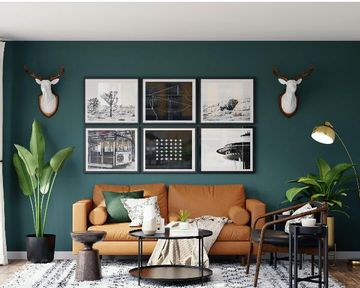Living Off-Grid: Tips for a More Self-Sufficient Home
Although the quintessential notion of off-grid living typically involves a simpler rural lifestyle, there are numerous methods to achieve greater self-sufficiency even within an urban setting.
Although it might not be possible for everyone to be completely self-sustainable, there are multiple reasons to attempt to adopt this lifestyle as far as possible. To start, the environmental benefits that accompany off-the-grid living are vast.
“Whatever a homeowner does to become less reliant on the main city gridlines will greatly reduce the household’s carbon footprint,” explains Regional Director and CEO of RE/MAX of Southern Africa, Adrian Goslett. He adds that living this kind of lifestyle could potentially help homeowners live healthier, more active lives. “Cutting costs is another attractive reason for going off the grid. By reducing the resources being consumed, and instead producing these resources yourself, you will be able to achieve greater cost efficiency and contribute towards a more sustainable future,” he notes.
To help homeowners in their journey towards becoming more self-sustainable, RE/MAX of Southern Africa shares the following tips on how to start living off-the-grid.
Find Alternative Power
South Africa is famous for its sunshine – an average of 2,500 hours of sun every year. This is why solar power is a viable option for many South Africans. You will also need enough battery storage to cover your energy usage when your solar panels are not producing. If you want to keep the power on when the grid is down, you will usually just need one solar battery.
Find out more about getting your home ready for solar
For those who are unable to afford the initial capital outlay, bottled gas is a more affordable alternative and can primarily be used as heating, hot water, cooking, and auto fuel. It is relatively simple to implement and is a low-carbon fuel, which means it will help lower your carbon footprint.
If you are installing gas appliances in your home, don't forget to get a gas compliance certificate
Access your own water supplies
Instead of using clean water to water the gardens or to flush the toilet, you could use the grey water from washing clothes or showering. In addition to grey water, rainwater could vastly help with the reduction of your reliance on the grid. Even though rainwater could be contaminated, it could be very effective for the use of other daily functions such as laundry, gardening, or flushing toilets.
Find out how you can save water at home with these 12 easy tips
Reduce, Re-use, Recycle
Recycling reduces the amount of waste that gets sent to landfills and incinerators. The chemicals released from the waste in these landfills are very harmful to the environment, which is why recycling can help slow down global warming, reduce pollution, and help conserve energy.
You can also reduce your own waste footprint by creating your own compost heap from food waste. Compost helps maintain the quality of the soil by enriching it with nutrients from the decomposed organic material. It helps maintain moisture and therefore reduces the need for water.
Similar to recycling and composting, upcycling (turning unwanted or used objects into an object of higher value) helps reduce the number of chemicals released into the atmosphere by landfills and incinerators, as well as reduces the need to produce new materials, which also helps maintain resources.
“Implementing some of the technologies and techniques mentioned above would not only benefit the environment but could help increase the value of your property as well. Energy efficiency has become a buzzword for house hunters, and not just because of load shedding; homeowners all around the world are trying to go green. A property that is less dependent on the grid makes for a sound investment opportunity. If you need help finding the perfect real estate to start your off-grid journey, speak to your local RE/MAX real estate office,” Goslett concludes.

